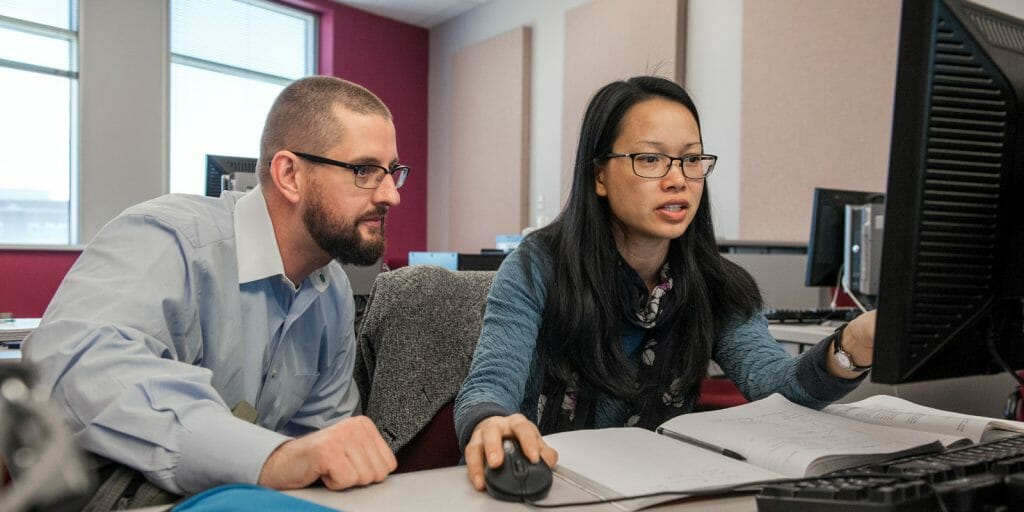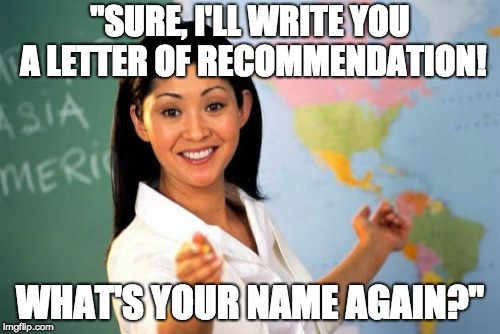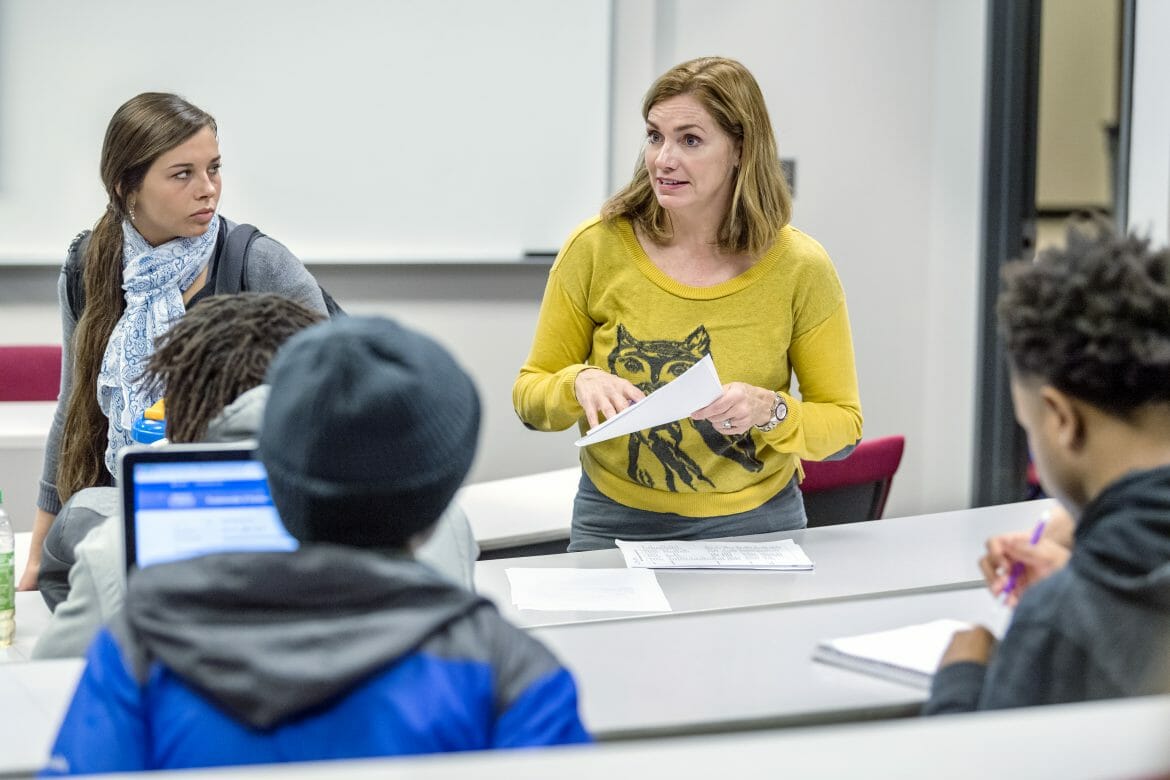Although you wouldn’t dare say it to their face, professors probably fall in the group of people that you don’t want to see more than you’re required to. They already require your attention for around 3 hours a week, so why do they deserve more of your precious brain real estate? The reasoning should actually be the primary reason you decided to pursue a higher education. Your instructors are professionals and experts who actually care about what they’re teaching. This alone makes them extremely valuable as connections in your network that should be (at least) doubling during your college years.
Some of them are simply cool human beings to know and learn more about, and you may find that you actually have quite a bit in common! Learning how to make connections with your professors is a vital skill to pick up, so here is where your friendly neighborhood Student Voice throws you some nifty tips ‘n tricks… for FREE!
Become an active participant in class

“Well, that’s disappointing. You’re telling me that I have to talk to professors AND stop hiding behind my laptop screen the entire class period? What a bogus tip, Student Voice.” Hear me out! The best way to make a good first impression on a professor is to be an active participant in discussion, ask interesting questions, and follow all of the instructions you are given.
Making this good first impression is crucial, as your professor will likely remember your name and associate it with your good performance in class. This lays a sweet groundwork for later steps in this process, namely in getting that elusive letter of recommendation. Give them a reason to like you.
Not only will participating in class attract the attention of your professor, but it’ll benefit your grades and make it easier to form better study habits. A little two-for-one-special! How’s that for a “bogus tip?”
Take advantage of office hours and find a common thread

No, office hours aren’t listed to simply take up space on a syllabus. Professors actually set aside time out of their day to help foster student success. You may want to make an appointment with them, but even if you don’t, they’ll probably be there – waiting. Not like they’re a robot, though, as they are actual humans doing their job.
Say it with me: Professors are people, too. While you should definitely come prepared with questions regarding assignments and the big upcoming tests, treat them as a human. Ask them about their career, their educational background, and their hobbies. Believe it or not, your teachers are not monsters focused solely on destroying your sanity in an 18-week period. They also enjoy talking about things outside of school, so use this as an opportunity to connect.
Through natural conversation, you may find that you share a favorite sports team, a favorite vacation destination, or play the same video game in your same nonexistent free times. Finding this common thread on a personal level gives the professor a final piece of information to associate with your name. This is the name of the game when it comes to networking – connecting with people on a human level and building lasting working relationships that are mutually beneficial for both parties.
Follow up!
Despite all of the effort you’ve put into forging a connection with your professors, I haven’t even gotten into the most important part of the process – following up. What really will set you apart from the pack is how well you keep the connection alive. After every meeting, thank the professor for speaking to you.
When the class is finished, thank them for teaching you and give them a brief recap of what you’ve taken from the class. That will show that you actually cared about the class rather than just the grade on your transcript. It doesn’t stop there, though.
Professors love hearing from their former students about their current plans and recent successes. Connections fade over time, and professors are great connections to hold on to for as long as possible.
Should you ask for a letter of recommendation?

Ah, one of the biggest reasons to create and maintain a connection with professors. One of the most common mistakes that college students make is that they don’t know when it is appropriate to ask for a letter of recommendation.
When applying for research opportunities, scholarships, graduate assistantships, and virtually anything else, references and letters of recommendation from faculty are what can make or break you. They advise you to ask those who can give an honest report on why you (from experience) should be considered. You’ll want to pick a professor that can recall specific instances where you either made an impact on the class or on themselves as a teacher.
Professors love to recommend their former students, but they don’t appreciate being asked if you never really made a connection with them. If you follow the tips in this article, however, you should have a full arsenal of faculty to ask for recommendations from. One way you can utilize a recommendation online is by asking that same professor to post your recommendation on your Linkedin profile so employers can see that you are capable of networking and taking advantage of your college experience.
To make a long story short, you’re not going to find a better ally for your professional career than the people you are paying to teach you. These are industry professionals who want you to succeed, so use their knowledge and connections by showing them that you want to succeed yourself. I promise that you won’t regret it when applying for that first big job, as long as you don’t forget to thank them when all is said and done!


COMMENTS ARE OFF THIS POST